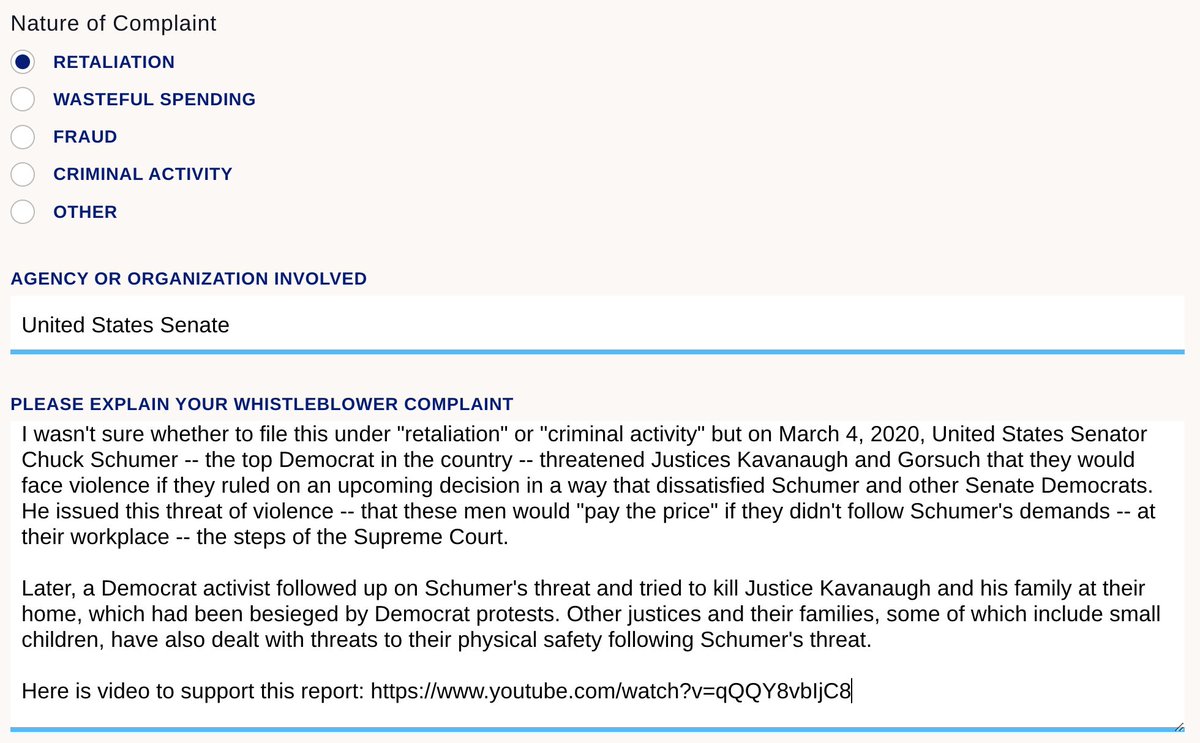
Craig Wilson Гаага 🇺🇸
@rebelfd
Followers
808
Following
17K
Statuses
37K
God, family, poker, politics, world events, esports
New York, USA
Joined May 2009
@NeverMagat @florian_krammer Ain’t no way spacex is providing specs to the government so that other vendors can build their rockets. You’re tripping.
0
0
0
@GlenwoodNate @florian_krammer They haven’t caught a booster with a robot much less land one on an unmanned barge.
1
0
0
@BlueBoxDave Dems had a chance to play nice, but they spawned, Smith Willis Bragg James etc etc. I give zero shits what they think now.
0
0
1
@MollieeWalkerr I’ve watched the replay several times and have a hard time seeing Urho getting his stick on it. Official score must have a better angle.
0
0
1
Wrong SpaceX sells a variety of products and services to the U.S. government, particularly to its intelligence, military, and space agencies. Here are the key products and services: 1. **Launch Services**: - **Falcon 9 and Falcon Heavy Rockets**: SpaceX provides launch services for both commercial and governmental payloads, including satellites for the Department of Defense (DoD) and other agencies. These launches are integral for placing military and intelligence satellites into orbit. 2. **Satellite Communication Systems**: - **Starlink**: While primarily a commercial product, Starlink has been used by the U.S. government, notably in conflict zones like Ukraine for military communication purposes. - **Starshield**: This is a specialized version of Starlink for national security customers, providing secure satellite communications. SpaceX has won contracts to develop and deploy this network for U.S. intelligence agencies, specifically noted with the National Reconnaissance Office (NRO) for a $1.8 billion deal focused on espionage from space. 3. **Crew and Cargo Transport Services**: - **Dragon Spacecraft**: Under contracts like Commercial Crew Program with NASA, SpaceX uses the Dragon spacecraft to transport astronauts to and from the International Space Station (ISS). Additionally, the cargo variant of Dragon delivers supplies to the ISS. 4. **Satellite Constellation for Surveillance and Intelligence**: - SpaceX is developing a network of spy satellites under the Starshield program. These satellites are designed for continuous Earth observation, providing the U.S. with enhanced capabilities for intelligence gathering and military operations. 5. **Support for Space Missions**: - SpaceX has contracts for various space missions, including those for the U.S. Space Force, where they launch satellites crucial for national security, GPS, and other strategic purposes. These products and services not only represent a significant portion of SpaceX's revenue but also deepen its ties with U.S. government agencies, particularly in the realms of defense and intelligence. The specifics of these contracts often remain classified, but it's clear from public disclosures and reports that SpaceX is a key player in providing space-based services to the U.S. government.
1
0
0
Your ambiguous term usually seems to be off. From Grok👇 The success rate of SpaceX rockets across all prototypes varies by rocket type and generation. Here's a breakdown based on available data: - **Falcon 9 Family**: As of the latest information available, the Falcon 9 family of rockets has a success rate of approximately **99.33%**. This is calculated from 448 launches with 445 full successes, two in-flight failures (SpaceX CRS-7 and Starlink Group 9–3), one pre-flight failure (AMOS-6), and one partial failure (SpaceX CRS-1). - **Falcon Heavy**: Falcon Heavy has achieved a **100% success rate** with 5 successful missions out of 5 launches. - **Starship Prototypes**: Earlier prototypes like Grasshopper and Falcon 9 Reusable Development Vehicle (F9R Dev) were experimental and focused on vertical takeoff and landing, but specific success rates for these early tests are not comprehensively documented. However, for the Starship test launches, Elon Musk has mentioned a 50% success rate expectation for early orbital test launches, indicating the experimental nature of these missions. - **Overall Success Rate**: When considering all launches including Falcon 1, Falcon 9, Falcon Heavy, and the experimental Starship tests, posts on X and recent web articles suggest an overall success rate around **97.8%** to **98.67%**, although this can fluctuate with new launches and test outcomes. Please note, these statistics reflect the data up to early February 2025, and SpaceX's ongoing development and testing of new prototypes could alter these percentages. SpaceX's approach to innovation often involves accepting higher risks in early development stages to achieve long-term reliability and cost-effectiveness.
2
0
0
@florian_krammer NASA has never caught a rocket booster with a robot arm, so Spacex does provide one of a kind products. Research is not a physical good and is not one of a kind. US could pick from thousands to do research. How many offer rockets?
2
0
0


